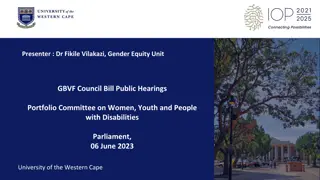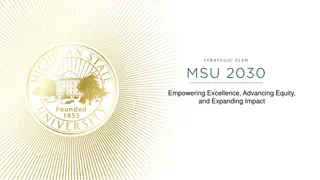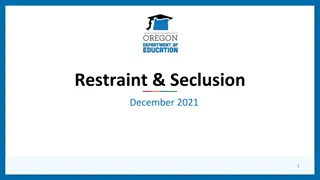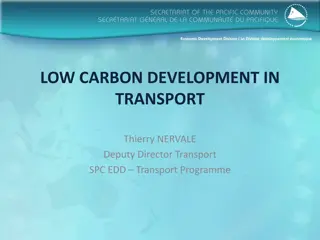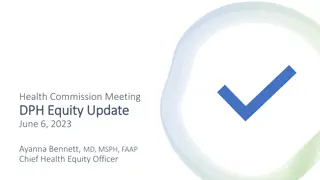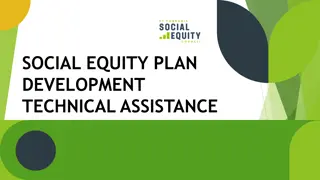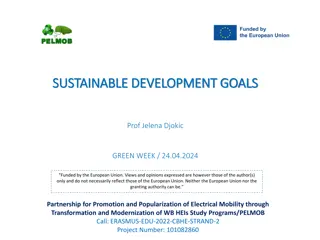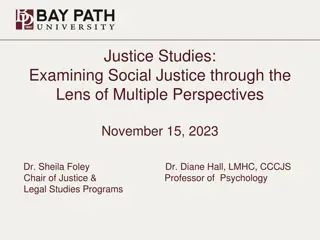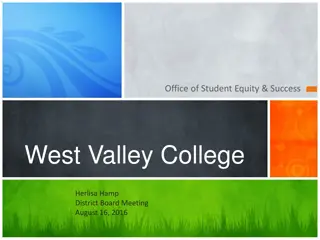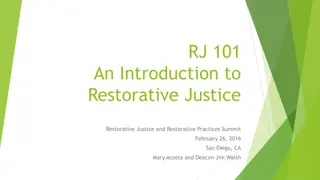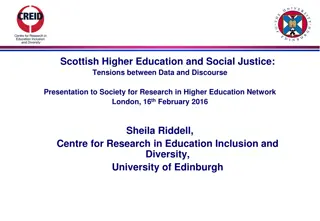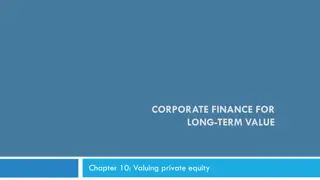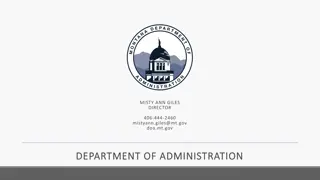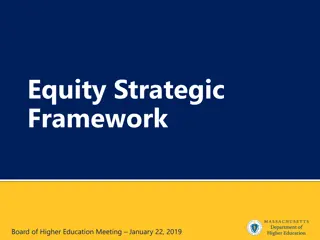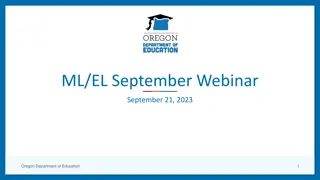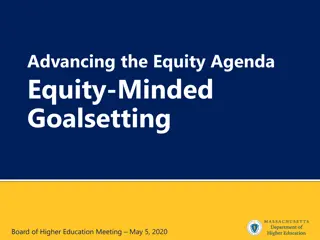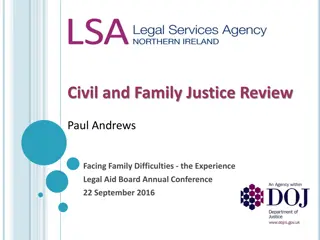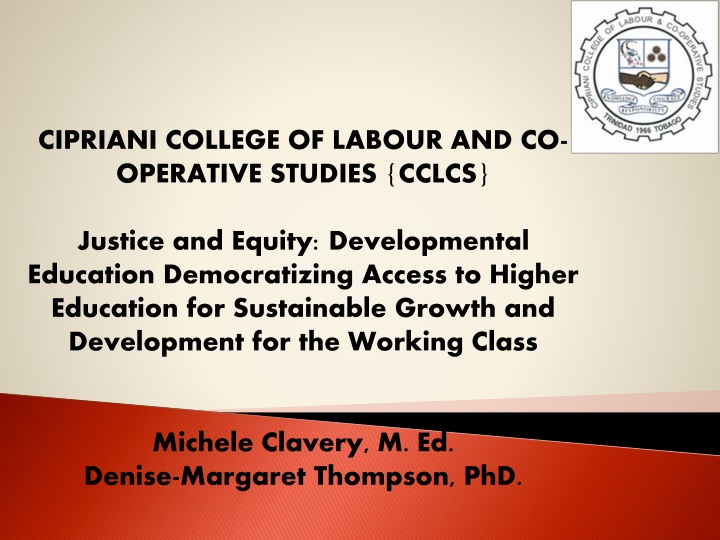
Justice and Equity in Higher Education for Sustainable Development
Developmental Education at Cipriani College of Labour and Co-Operative Studies focuses on democratizing access to higher education for the working class, addressing challenges of college readiness, and promoting intentional approaches to strengthen the economy and compete globally. Explore the imperative of justice, capacity building, and access through developmental education for a more equitable and sustainable future.
Download Presentation

Please find below an Image/Link to download the presentation.
The content on the website is provided AS IS for your information and personal use only. It may not be sold, licensed, or shared on other websites without obtaining consent from the author. If you encounter any issues during the download, it is possible that the publisher has removed the file from their server.
You are allowed to download the files provided on this website for personal or commercial use, subject to the condition that they are used lawfully. All files are the property of their respective owners.
The content on the website is provided AS IS for your information and personal use only. It may not be sold, licensed, or shared on other websites without obtaining consent from the author.
E N D
Presentation Transcript
CIPRIANI COLLEGE OF LABOUR AND CO- OPERATIVE STUDIES {CCLCS} Justice and Equity: Developmental Education Democratizing Access to Higher Education for Sustainable Growth and Development for the Working Class Michele Clavery, M. Ed. Denise-Margaret Thompson, PhD.
Explore Developmental the Equity and Access Identify challenges of College R Readiness working Raise intentional approach to Contribute Education Higher Economy for Competing Globally Explore Developmental Education from the Global Equity and Access Identify challenges of College eadiness and working classes Raise awareness of Cipriani s intentional approach to Dev Ed Contribute to the Education for Democratizing Higher E Education in Strengthening Economy for Competing Globally Education from of Justice, Global I Imperatives mperatives of Justice, and Remediation of the classes awareness of Cipriani s Remediation of the Dev Ed to the Discourse for Democratizing A Access ducation in Strengthening the Discourse on on Dev. ccess to Dev. to the
Troutt (2014) for Working Class Communities Lack of regional equity in policies Underlying inequity often permanently limits opportunity for generations Structural flaws create or deny opportunity in growing income and wealth inequality and environmentally unsustainable growth and consumption patterns. Harkavy (2006) Goal for 21st century Colleges and Universities Develop and sustain democratic communities and societies, Educate students to be creative,caring, constructive citizens in advancing citizenship and social justice Casazza and Silverman (2013) Colleges, Universities and Higher Education policymakers must provide meaningful access to postsecondary education and related academic support for all students (essential and imperative to strengthen the economy and compete globally) for increased college completion: 1. Expand evidence-based, comprehensive support systems 2. Develop innovative funding models 3. Promote an ecosystem of education 4. Recognize developmental education as a field of practice 5. Fund research to measure long-term impact.
National/Global CCLCS Mission, Vision and Study Objectives Capacity Developmental Education in the 21st st Century Justice & Equity through Developmental Education at CCLCS Some Possible F Future Directions National/Global Imperatives of Justice and Imperatives of Justice and Equity Equity CCLCS Mission, Vision and Study Objectives Capacity, Consciousness and Access for , Consciousness and Access for the Working Class the Working Class Century Developmental Education in the 21 Justice & Equity through Developmental Education at CCLCS uture Directions Some Possible
Justice: Legal and/or Moral Correctness differing perspectives and concepts of philosophy, theology, religion, law, ethics, rationality, morality Equity: Quality of being Fair, Impartial and Inclusive.. justice according to natural law or right; freedom from bias or favoritism a risk interest or ownership right in property; common stock of a corporation Access: Ability or Right to Approach, Enter, Exit, Communicate with, or Make use of.. Academia: The Sacred Space dedicated to the Goddess of Wisdom, Athena the modern scientific and cultural world or community of learning, research and scholarship
CCLCS VISION Proud tradition of accessible quality education, we aim to exceed the expectations of our Students, Staff and other Stakeholders, as the premier tertiary educational institution in the Caribbean, in areas of Labour, Co-operative Studies and a dynamic range of other specialized training programmes LEADER IN LABOUR & CO-OPERATIVE TRAINING, EDUCATION AND DEVELOPMENT
To increase the capacity and consciousness of the Labour and Co-operative Movements, both locally and regionally, and to empower present and future working people. Foster and encourage critical thinking; Provide the highest quality educational and research programmes for our students in a physically and intellectually supportive learning environment; Provide and enable a highly committed, qualified, dynamic and professional staff; Be proactive and innovative in meeting the needs of all our stakeholders.
CCLCS PROGRAMMES Specialized Labour Studies Co-Operative Studies Security Administration Project Management Human Resource Management Industrial Relations Public Relations and Marketing Occupational Safety, Health and the Environment Specialized T Training & Degree Programmes raining & Degree Programmes
- -a field of practice and research within higher education with a theoretical foundation. a field of practice and research within higher education with a theoretical foundation. - -it promotes cognitive and affective growth of post it promotes cognitive and affective growth of post- -secondary learners at all levels. secondary learners at all levels. - -it is sensitive and responsive to individual differences and special needs among learners (NADE, 2006) it is sensitive and responsive to individual differences and special needs among learners (NADE, 2006) - -also called remedial education also called remedial education - -The support services guided by the principles of adult learning and development ( (Boylan The integration of academic courses and support services guided by the principles of adult learning and development Boylan, 1999 integration of academic courses and , 1999) )
--began in the US in the 17 programmes -- -- policy makers for instruction in academic content and development of skills as pre requisites to college began in the US in the 17th programmes established in the 18 --it was termed remedial teaching --growing concern among educators and policy makers for instruction in academic content and development of skills as pre- - requisites to college- -level courses. th century; formal th century. century; formal established in the 18th century. it was termed remedial teaching growing concern among educators and level courses.
Re academic and non impact on student success (Moylan & Saxon, 1998). The name change encompasses academic and non learning, self management, study skills, etc. Re- -defining the name to encompass both the academic and non- -cognitive factors which impact on student success (Moylan & Saxon, 1998). The name change encompasses academic and non- -cognitive factors such as attitude toward learning, self- -concept, autonomy, time management, study skills, etc. defining the name to encompass both the cognitive factors which cognitive factors such as attitude toward concept, autonomy, time
Tied to the thinking that institutions of higher learning should focus on the development of the whole student Tied to the thinking that institutions of higher learning should focus on the development of the whole student The C21 The C21
Supports the academic and personal growth of underprepared college students Supports the academic and personal growth of underprepared college students Provides instruction, Counselling, Advising and Tutoring Provides instruction, Counselling, Advising and Tutoring Focuses on particular skills development for successful matriculation through college Focuses on particular skills development for successful matriculation through college
It has been referred to as a C21 social and economic imperative Jr.,1998) C21 demands a strong commitment to student access & a clear focus on the demands of the workplace Addresses the growing numbers of ill- prepared in-coming students Assists them by way bringing up to college- level preparedness C21 social and economic imperative (Mc Cabe and Day,
Prepares them for C21 jobs Ensures that students acquire essential skills and achieve higher levels of performance
A shift from redressing academic deficiencies which teach essential skills Principal targets are language and computation skills A shift from tutorials to structured curricula and computerized curricula Mastering learning strategies and developing self-confidence with full personal development of students, hence the term Developmental Education Developmental Education
New approach adopted Not without challenges Even with the name change students view (unspoken but felt) portrayed in their non- verbal responses to the assistance offered. Students seem to prefer private consult rather than class sessions CCLCS is seeking to address this by way of re-orienting students to learning through programmes that clearly specify what is to be learned (Cross, 1971)
A re-orientation programme for both faculty and students then to the wider CCLCS body which stresses the whole person approach in addition to the academic Providing ample practice and encouragement Hosting sessions to ensure that the students better understand the process of learning and study skills Selecting staff who are interested and committed to working with remedial students
Programme must be approached with flexibility and open-mindedness a spirit of exploration into student learning and success skills must be cultivated Further training of faculty through short courses offered by the National Association for Developmental Education, NADE where we have membership
Instruction is offered primarily in Math and English As part of Student Services Dev Ed assistance is also offered in other areas of study Instruction is offered primarily in Math and English As part of Student Services Dev Ed assistance is also offered in other areas of study
ENG 110 COM 101 LOG 120 COM 250 MAT 100 CIS 100 SPN 100 COM 220 ENG 110 COM 101 LOG 120 COM 250 MAT 100 CIS 100 SPN 100 COM 220 CAS 130 ENM 142 HUM 100 HUM 200 HUM 220 LBS 100 PSY 100 RES 100 CAS 130 ENM 142 HUM 100 HUM 200 HUM 220 LBS 100 PSY 100 RES 100 SOC 100 SOC 100
Developmental education theory Transformative theories Institutional Placement policy Student eligibility (assoc degree) Exemptions Pre-requisite to other courses Duration of programme Students pursuing two dev. Ed. courses Mixed model Mainstreaming with ancillary support services Placement process Paper & pencil test English test (essay, reading skills, vocabulary, logical relationships, construction shift, sentence correction, missing sentence) Mathematics (basic math-fractions, decimals, percentages & ratios & basic algebric functions)
Test Evaluation Scoring guide for each test Standardization of marking (essay) Strict timeline of returned scripts Data used to place students & assist tutors Qualitative and Quantitative Data Test Evaluation Scoring guide for each test Standardization of marking (essay) Strict timeline of returned scripts Data used to place students & assist tutors Qualitative and Quantitative Data In addition to scores, data on info sheet to cover academic characteristics of students, secondary school info, goals & aspirations, academic abilities, plans & special needs. Program Evaluation Formative & summative assessment Evaluation of instructional quality, ancillary services, teacher characteristics, student & faculty perception. In addition to scores, data on info sheet to cover academic characteristics of students, secondary school info, goals & aspirations, academic abilities, plans & special needs. Program Evaluation Formative & summative assessment Evaluation of instructional quality, ancillary services, teacher characteristics, student & faculty perception.
2011/12: Tested: 176 Math; 90 English 2011/12: Enrollment: 2512 Tested: 176 Math; 90 English Enrollment: 2512 2012/13: Tested: 122 Math; 28 English 2012/13: Enrollment: 2234 Tested: 122 Math; 28 English Enrollment: 2234 2013/14: Tested: 101 Math; 10 English 2013/14: Enrollment: 2150 Tested: 101 Math; 10 English Enrollment: 2150 2014/15: Tested 2014/15: Enrollment: 2228 Tested: 52 Enrollment: 2228 : 52 Math Math; 7 English ; 7 English
Casazza and Silverman (2013) Colleges, Universities and Higher Education policymakers must provide meaningful access to postsecondary education and related academic support for all students (essential and imperative to strengthen the economy and compete globally) for increased college completion: 1. Expand evidence-based, comprehensive support systems 2. Develop innovative funding models 3. Promote an ecosystem of education 4. Recognize developmental education as a field of practice 5. Fund research to measure long-term impact. s

